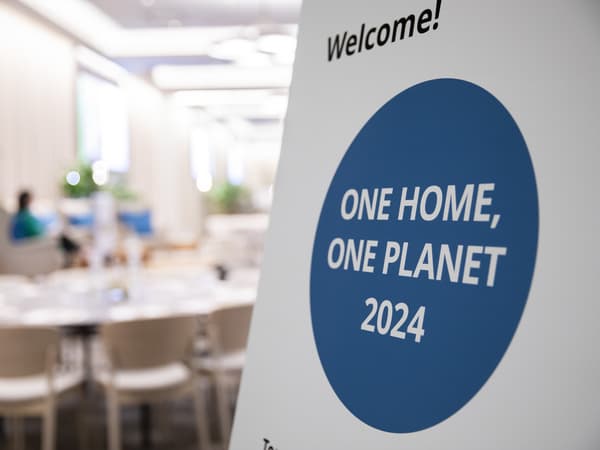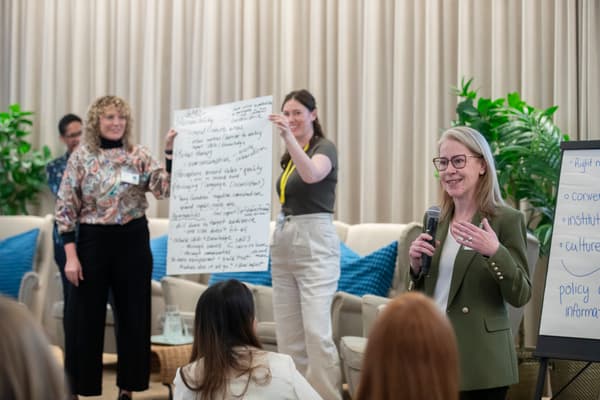Bringing Circularity Home: One Home, One Planet Canada Delivers a Roadmap for Circularity

On April 16, 2024, for the first time ever, IKEA Canada hosted One Home, One Planet (OHOP) Canada, an action-oriented multi-stakeholder event held at the 1 Hotel in Toronto, Ontario. The event brought together over 100 purpose-driven brands, businesses, government, community groups, social enterprises, colleges/universities, and consumers to discuss a challenge that has been years in the making: How can circularity be made more relevant, accessible and affordable for the average Canadian?
The event consisted of four key elements:
- A meaningful panel discussion that addressed the current landscape of circular solutions in Canada.
- Fast 5 presentations where sustainability leaders from various sectors showcased circular solutions in action.
- Collaborative breakout sessions where groups were encouraged to share circular successes in their sectors/communities, as well as identify areas for growth.
- A sharing session to report findings from the day and build out a shared national framework to help Canadians live more circular in their homes and communities.
“One Home, One Planet is about bringing together like-minded individuals and groups to connect disparate circular solutions,” says Selwyn Crittendon, CEO and Chief Sustainability Officer, IKEA Canada. “We are the experts, leaders, and influencers. Let’s bring our solutions to the table and say in one voice ‘Yes Canada, we have a plan to make circularity easy, accessible, and affordable for you!’ Canadians deserve to live better and as circular leaders, we owe them a plan to help them live that life.”
During OHOP Canada, participants worked together to share circular successes in their sectors and communities, as well as identify areas for growth. The outcome of this event was a shared national framework, a type of roadmap, that was developed to help Canadians live more circular in their homes and communities. Highlights from the roadmap include:
- Canadians need to be educated and socialized around local reuse and repair options available. Circular options need to be made easily accessible, convenient and affordable for all, no matter where they are located within Canada.
- Circularity is not just an environmental activity, but rather an opportunity that has economic value. While there are clear benefits for the planet, recycling, reuse and repair are also about affordability; more and more Canadians are looking to save money by wasting less in their homes. Reusing and repairing household items also creates jobs.
- Circularity is a global issue that can be actioned at the local level. Big movements cannot be made alone; partnerships among organizations and community groups are imperative for moving forward.
- There are various circular initiatives in place at the local level. More can be done to coordinate existing circular services and opportunities so that more of the many Canadians can get involved.
- Products should be designed for reassembly, disassembly and repair right from the start. Encouraging a circular innovation culture will help drive new technology, systems and practices, and help normalize shared ownership of circular solutions.
While an IKEA event, One Home, One Planet focused on what can be actioned together. Canada’s Circular Roadmap is not intended to merely be a discussion document nor a simple summary of OHOP. It is designed to be a beginning, a first step in developing clear and readily accessible solutions that makes reuse and repair easier for Canadians households. To learn more about One Home, One Planet Canada and watch a recap of the event, visit IKEA.ca/reports.
